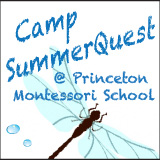-
firefly-slider-3-25.jpg
-
hopewell-tennis-slider-3-241.jpg
-
stuart-country-day-school-summer-camp.jpg
-
pds-slider-2-23.jpg
-
notre-dame-camps-slider-4-24.jpg
-
banj-summer-camp-02.jpg
-
lewis-slider-2-21.jpg
-
arsenal-slider-1-23.jpg
-
rafa-nadal-slider-2-231.jpg
-
SoR-slider-12-24.jpg
-
waldorf-school-summer-camp.jpg
-
camps-dean-2-26.jpg
-
camps-steve-kate-2-26.jpg
-
liberty-lake-slider-12-24.jpg
-
rambling-pines-summer-camp-01.jpg
-
hun-slider-4-25.jpg
Princeton NJ Summer Camps Articles
Most recent posting below. See other articles in the "Other Articles" section at the bottom.
Why Camp?
What an amazing world we live in, with more information at our fingertips than we could have ever imagined when we were growing up. This new world has come with a price, as we have replaced human interaction with technological interaction, and created a generation of young people who are not fully prepared for college, the workforce or life. While the USA has the highest percentage of graduating seniors choosing to attend colleges or universities, we also have the highest percentage of first year collegians who drop out. The Partnership for 21st Century Skills, a non-profit comprised of the top corporations and forward thinking educators, sees a gap in our education system between the “3 R’s” and what employers are truly looking for with their new hires.
Every parent wants what is best for their children, though. And if there is an antidote to the gaps created by modern society, a skills supplement to what kids learn in schools, it might be right down the road at your neighborhood Summer Camp!
1. Brain-Based Learning
Brain-based learning validates and affirms what has been happening at camps for the past century. Research provides evidence-based credibility to what many in the camp community have intuitively understood for years, that critical thinking, problem solving, reflective skills, communication, and creativity are all supported by the active, participatory learning setting that is “Camp.”
Camp is excellent for children’s developing brains. The things that parents wish for their kids — independence, confidence, friendship-building, resilience, thriving, character, grit, etc. — these are real outcomes for kids who have quality camp experiences. The middle prefrontal cortex, right behind our eye sockets, is the part of the brain that gives us the ability to do important things like regulate our body and emotions, have insight into ourselves and others, feel empathy, communicate in an attuned way, bounce back after failure, adapt to new situations, make thoughtful choices, and overcome fear. That’s a pretty good list of what’s needed for a successful life with good emotional and mental health, meaningful relationships, and the conscientiousness to make an impact on the world
The brain functions like a muscle. When it’s used, it grows and strengthens. So, when kids have camp experiences that require them to take risks, be flexible, handle their emotions (especially away from their parents), be persistent to master something, build relationships, and so on, it strengthens this important part of the brain for life. At camp, kids usually feel safe and secure, and the setting is so fun that kids are willing to work harder and tolerate more frustration and setbacks- because they’re having a good time doing it! They build character skills like grit, become more independent, and are better able to make friends. (Bryson, 2013.)
2. Nature and the Out-of-Doors Experience
Today’s youth suffer from an alarmingly limited access or interest to the natural world. We can look at obesity rates alone and realize physical activity and access to the outdoors have been altered. This change in activity has been precipitated by any number of things, including the fear most parents have of allowing their children to play outside unsupervised (like they once did) due to highly unlikely possibility of harm and abduction.
Activity has also been modified by the number of hours young people spend in front of screens — an average of seven and a half hours a day. Sadly, our time spent out of doors has decreased by 50 percent in the last two decades, and the benefits of nature and the outdoors go well beyond physical well-being. Nature supports cognitive, psychological, spiritual, and social well-being. (Keniger, Gaston, Irvine, Fuller, 2013.) Direct experience in nature is important to a child’s intellectual, emotional, social, spiritual, and physical development (Kellert, 2005). Most traditional Summer Camps are based outside, and require that children explore, enjoy, and sometimes resilience in the elements. At my Camp, when parents ask, “what do you do when it rains?” I answer that first off, we call it “Liquid Sunshine,” and lots of times we’ll actually sing and dance, and jump in puddles in the rain- Good old-fashioned fun, that kids thoroughly enjoy!
3. Play
This is not a four-letter word. Yet, it we have severely marginalized play, which denies a rite of passage — childhood! We have witnessed a 25 percent decline in play in our lifetime. Play is a normal developmental process. To tinker with normal development is a dangerous experiment. Those who are not allowed, encouraged or choose not to play have less energy, less interest, and less enthusiasm about life. And we’re not talking about playing video games in the basement against friends sitting in their basements! We’re talking about hand-to-hand, face-to-face, old school, getting dirty, scraping your knee, hurting your feelings, REAL stuff that helped shape the adults that we are today.
Play is a critical stage of learning. It is a learning process that is actual and active. Play allows young people to practice “how” to survive and thrive in a community. It teaches young people “how” to learn, gaining the skills of persistence, grit, participation, failure, encouragement, and perseverance. Play is a process of experimenting and redefining important life lessons — a form of self-regulation. It sets a foundation for personal mastery.
There’s a Place I Know
Activities which strengthen the brain, being outside in nature, and physically “playing” with others are things which took place naturally in our neighborhoods for years, but in today’s society, the best environment for this to happen could be at Summer Camp. In the past few decades, many parents have focused their responsibilities on building their child’s resume’, not preserving their rite of passage. From what I’ve seen recently though, the pendulum is slowly swinging back. Parents don’t want their 25+ year-old children living at home. They want their kids away from screens and out of the air conditioning, as they recall the challenges of their own childhoods with newfound reverence, and now seek for the same for their children. We all know where kids go to receive “academic” equipment for life, but there is a special place each summer where they can go to receive critical social and emotional readiness equipment. Where they can intern for life- SUMMER CAMP!
References
Bryson, Tina Payne (2014). Bunks are good for brains: The neuroscience of sleepaway camp: Camping Magazine. American Camp Association
Kellert, S. (2005). Building for life: Designing and understanding the human-nature connection. Island Press: Washington, D.C.
Keniger, L., Gaston, K., Irvine, K., and Fuller, R. (2013). What are the benefits of interacting with nature? International Journal of Environmental Research and Public Health, 10(3). Retrieved from www.mdpi.com/1660-4601/10/3/913
Peg Smith is the chief executive officer of the American Camp Association® (ACA). ACA is the champion of better tomorrows — providing resources, research, and support for developmentally appropriate camp experiences. Learn more at www.CampParents.org or www.ACAcamps.org.
Andy Pritikin is the owner/director/founder of Liberty Lake Day Camp, in Burlington County, NJ, a partner/founder of Everwood Day Camp, in Sharon, MA, and the incoming President of the American Camp Association, NY/NJ. www.LibertyLakeDayCamp.com, www.ACA-NYNJ.org
Other Articles
No More Articles Exists.
By Date
2026
-
January (1)
2025
-
April (2)
2024
-
February (1)
2023
-
January (1)
2022
-
March (1)
2019
-
April (1)
-
February (1)
2017
-
February (2)
2016
-
January (1)
2015
-
April (1)
2014
-
January (1)
2013
-
May (1)
2011
-
January (4)
2009
-
February (2)
2008
-
February (2)
2007
-
February (1)
2006
-
April (1)
























